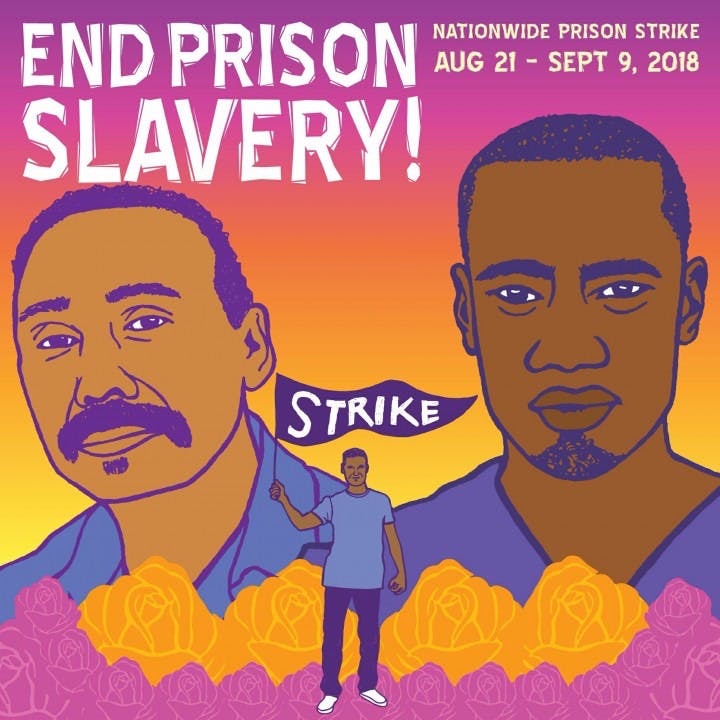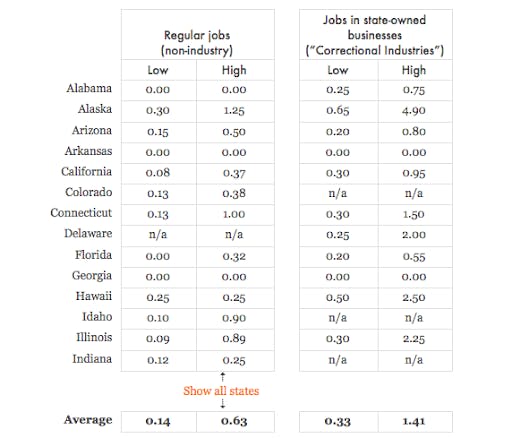BY: LIZA WILSON

via IWOC
Incarcerated activists across the nation staged one of the largest prison strikes in U.S. history from August 21 to September 9.
The movement's goal is to bring attention to slave labor practices in prisons across America. The 13th Amendment to the Constitution made chattel slavery of human beings illegal, but had one exception - slavery is still legal for those who have been convicted of a crime.
The Incarcerated Workers Organizing Committee (IWOC) is the leading body of the movement. Hundreds of their members have resisted the unfair treatment in prisons through labor strikes, hunger strikes, and other forms of protest.
IWOC's website has a detailed list of demands for the humane treatment of incarcerated persons. The immediate demands called for improvement of living conditions for prisoners, an end to unpaid penal labor, racialized overcharging, over-sentencing and parole denials and gang enhancement laws that disproportionately inhibit Black and brown people.
Incarcerated persons work long hours and the pay is meager to say the least. In most states, the wages average between 14 cents and 63 cents per hour for non-industry jobs and between 33 cents and $1.41 for state owned business jobs. Some states, such as Alabama and Georgia allow inmate labor to go unpaid.

via prisonpolicy.org
Inmates often are firefighters, janitors and factory workers in dangerous conditions, without proper protection or health care. In California, prison labor has been used to put out wildfires, with inmates earning $1 per hour plus $2 per day according to Vox. Collective Evolution reported, many high-profile companies use cheap prison labor to earn massive profits, including McDonald's, Whole Foods, Victoria's Secret and Aramark.
The strike was response to the prison riot at South Carolina's Lee Correctional Institution in April 2018. Seven inmates were killed and dozens more injured.
Although the national strike has ended, activists are still organizing tirelessly to change the way our criminal justice system works. Organizations like IWOC work to amplify the voices of working class people, Black, Latinx and LGBTQ+ populations, immigrants and people with mental illnesses, who are disproportionately targeted by the prison industrial system.
The IWOC website provides more information about ways that we can get involved and support the movement to end modern slavery in prisons.


